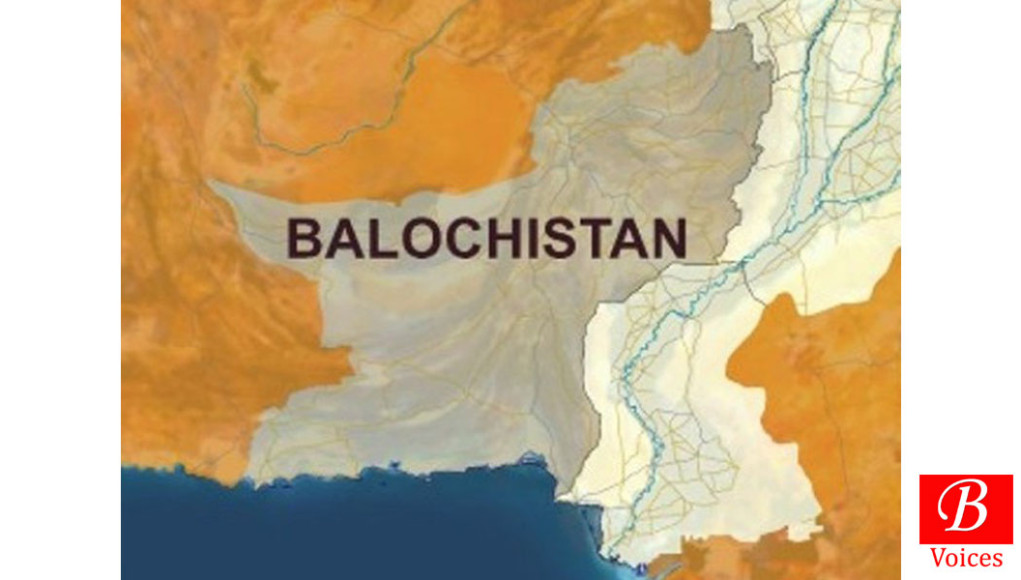Ayaz Ahmed
After studying the subject of political economy in the discipline of ever-expanding international relations, one can easily and fully grasp the underlying reasons for exceptional development and threatening backwardness of a nation. According to this subject, politics is the main field from where the socio-economic prosperity of a nation begins. If the politics of a country is effectual and efficient, it greatly helps the economy to grow exponentially. If the politics lacks these required qualities, the same country cannot stand on its economic feet; then it needs timely bailouts from outsiders. Corrupt, so-called and incompetent politicians have deprived naturally-rich Balochistan of its due progress and modernization. The God-gifted province is under the clutches of powerful and self-interested leaders who have decided to stick to power till drying the province up on all fronts.
While diagnosing the protracted backwardness of resource-rich Balochistan, the province is always compared with the rest of Pakistan. The first injustice to the province is that it is compared with crisis-ridden, corruption-stricken and poorly-governed Sindh, Punjab and KPK. It is tantamount to solving one deeply-seated issue with another to expect a desirable result. One should bear in mind that we are living in the twenty-first century, so it is imperative to compare Balochistan with advanced and prosperous nations so as to ascertain its basic issues properly.
If Balochistan is compared with the administrative units of the United States and other developed European countries, there appears a large number of striking differences on political, economic and educational fronts. To start with, the political system in these developed countries is genuinely democratic, completely inclusive, largely transparent and entirely result-oriented. The public is educated enough that they cast votes in favour of the best candidates and keep a constant watch on their elected representatives.
On the other side, the corruption-ridden politics in Balochistan is bereft of all these prerequisite qualities of democracy. Politics is rather undemocratic and based on substantial affluence and unchallengeable influence of feudal lords, aristocrats, quasi-nationalists and dynastic rulers. Some selective people have monopolised power by looting, embezzling and plundering provincial resources and using the same money to purchase votes on the eve of elections. These so-called democratic representatives in complicit with self-serving and highly-corrupt bureaucracy avoid paying taxes calculated to amass looted and black money in their multiple accounts in and outside of the unfortunate province. In a nutshell, the democracy in Balochistan vividly manifests the worst form of the democratic system ever existed in the contemporary world.
One can easily notice the effective role of bureaucracy in the phenomenal development of countries around the world. The administrative set up immensely helps the provincial and central governments in prudently crafting and timely executing required laws aimed at maximising national interest. In developed countries, the institution of bureaucracy is well-trained, honest, impartial and solution-oriented. In Balochistan, bureaucrats like detained Finance Secretary Mushtaq Ahmed Raisani hide millions of looted public money and gold in their residents and secret bank accounts. Apart from handful honest civil administrators, the majority of provincial bureaucracy is always immersed in diverting public money and resources for themselves and political bosses. Poor, disillusioned and long-neglected people barely have access to such corrupt officers to present and have mitigated their daily ordeals. Presumably, such bureaucratic officers, mostly belonging to the province, are largely responsible for the entrenched crises of Balochistan.
If the underlying secret of modernization and advancement of the developed countries is dug out, their innovative and qualitative education comes to the fore. Balochistan’s backwardness in terms of qualitative education has instigated some formidable stumbling blocks for purported progress in the province. The literacy ratio of the province is dismally low at 39 percent and female literacy rate in certain districts is as low as less one 1 percent. A large number of children aged between 5 to 16 are out of school. Moreover, Balochistan is lacking in an adequate number of schools and trained teachers in order to increase both quantity and quality in this field. Most schools and colleges are staffed with poorly-educated, under-trained and politically-appointed teachers. Thousands of teachers are ghost who are just receiving hefty salaries. A large number of seminaries are freely indoctrinating students with toxic and poisonous beliefs meant to be used for jihadist purposes. Students are deprived of creative, innovative and critical learning owing to political and religious reasons. Self-seeking, highly incompetent and corrupt politicians have made most of the higher educational institutions in Balochistan their political ground by means of disruptive and violent students unions.
The CPEC, regional connectivity, etc. would yield no meaningful results if the lingering political, administrative and educational backwardness of Balochistan is not resolved on an urgent basis. The PML-N and the corrupt, ineffectual and lethargic provincial government in Balochistan should keep in mind that without reforming all public institutions in the province, all plans of economic growth will fail in the foreseeable future. Let’s wait and see that whether the incumbent government would open its eyes from slumber and move realistically.
Writer is a featured columnist for Balochistan Voices.
Disclaimer: Views expressed in this article are those of the author and Balochistan Voices not necessarily agrees with them.
Share your comments!








